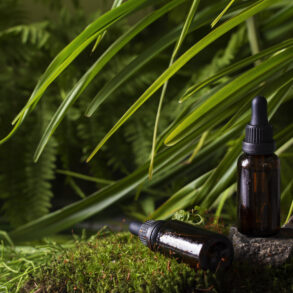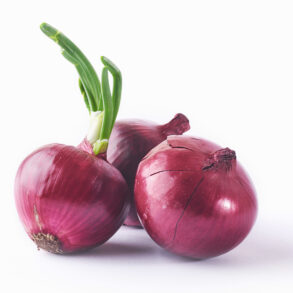The claim that onion juice for hair growth is an effective treatment is one of the most persistent, polarizing, and pungent in the vast realm of natural remedies.
Hailed as a “miracle cure” in countless traditional households, particularly across the Indian subcontinent, the Middle East, and the Mediterranean, and often met with profound skepticism in modern, evidence-based circles, the practice demands a thorough, unbiased investigation.
This article delves deep into the age-old practice, separating anecdotal fervor from biochemical reality, marketing hype from clinical data, to answer the pressing question that has left many standing at their kitchen counter, blender in hand: Is using onion juice for hair growth truly legitimate?
We will meticulously pit tradition against science, dissecting every claim and counterclaim to uncover the unvarnished truth about onion juice for hair growth.
The tradition of applying onion juice for hair growth spans generations, woven into the fabric of cultural beauty rituals. Grandmothers’ tales and community wisdom speak fervently of its power to combat hair loss, reverse premature graying, and restore thickness and vitality to languishing locks.
The staunch proponents of using onion juice for hair growth swear by its tangible results, pointing to personal testimonials of longer, stronger, and denser hair, often presenting it as a cure-all that Big Pharma doesn’t want you to know about.
But in an era of evidence-based medicine and advanced trichology, we must look beyond compelling anecdotes and tradition.
Can the humble onion, a staple of the culinary world, really stand up to the rigorous scrutiny of peer-reviewed clinical research when used as onion juice for hair growth? Let’s dissect the arguments from both sides, following the trail from the kitchen garden to the laboratory.
The Traditional Case for Onion Juice for Hair Growth: A Legacy of Folklore
To understand the persistence of this remedy, we must first appreciate the depth of its roots in traditional medicine systems. The advocacy for onion juice for hair growth is not a recent internet fad but is based on centuries of empirical observation, primarily within Ayurvedic, Unani, and other folk medicine traditions.
- The Sulfur Theory: The Cornerstone of Tradition. This is the most common and intuitive explanation offered by traditional practitioners. Onions are notoriously rich in sulfur, a mineral that is a fundamental component of keratin—the tough, fibrous protein that makes up approximately 95% of our hair strands and fingernails. The traditional belief is straightforward: topical application of onion juice for hair growth provides a direct, concentrated source of sulfur to the hair follicle and shaft, thereby strengthening the hair from within, reducing breakage, and creating a stronger foundation for new growth. This logic forms the bedrock of the argument for onion juice for hair growth.
- Antimicrobial and Antifungal Properties: Creating a Healthy Scalp Environment. A unhealthy scalp, plagued by infections, dandruff (often caused by the yeast Malassezia), or folliculitis (inflammation of the hair follicles), can create an environment hostile to hair growth. Traditional knowledge recognizes that onions possess natural antimicrobial, antibacterial, and antifungal properties. The premise is that applying onion juice for hair growth helps to cleanse the scalp, fight off pathogenic microbes, and reduce flakiness and inflammation, thereby removing a significant physical barrier to healthy hair growth and making the scalp a more fertile ground for hair to thrive.
- Blood Circulation Stimulation: The “Awakening” Effect. Anyone who has chopped an onion is familiar with its pungent, eye-watering vapors. These volatile compounds, when applied directly to the scalp, are believed to have a stimulating, almost irritant effect. This mild irritation, according to traditional thought, increases blood flow (hyperemia) to the hair follicles when massaged into the scalp. The logical progression is that improved circulation means a greater delivery of oxygen and vital nutrients (like iron and zinc) to the follicle, while also enhancing the removal of waste products. This nutrient-rich boost is thought to “wake up” dormant follicles and strengthen active ones, a compelling narrative supporting the use of onion juice for hair growth.
- Antioxidant Content: Combating Cellular Damage. Onions are a known source of flavonoids, particularly quercetin, and other antioxidant compounds. In traditional systems, these are thought to combat oxidative stress at the cellular level. Since oxidative stress from pollution, UV radiation, and metabolic processes is linked to hair follicle aging and apoptosis (cell death), the antioxidants in onion juice for hair growth are believed to protect the follicles from this damage, potentially slowing down hair loss and preserving hair pigmentation.
These traditional reasons for using onion juice for hair growth are logical, intuitive, and form a compelling, multi-pronged narrative that has been passed down for centuries. They address hair strength, scalp health, nutrient delivery, and cellular protection—all key factors in the hair growth cycle. However, intuition and tradition, while valuable, are not proof. This is where our investigation must turn to the world of controlled studies and biochemical analysis.
The Scientific Investigation: What Does the Research Actually Say?
This is where the investigation into onion juice for hair growth transitions from folklore to fascinating science. Unlike many folk remedies that rely solely on anecdote, the use of onion juice for hair growth has actually been the subject of clinical studies, allowing us to move beyond “it worked for my grandmother” and into the realm of data.
- The Landmark 2002 Study: A Clinical Trial for Alopecia Areata
The most frequently cited, and arguably the most significant, piece of evidence is a study published in the Journal of Dermatology in 2002. This was a controlled trial designed to investigate the effects of onion juice for hair growth on a specific type of hair loss.- Methodology: The researchers split participants with Alopecia Areata—an autoimmune condition where the body’s immune system attacks the hair follicles, leading to sudden, patchy hair loss—into two groups. One group was instructed to apply crude onion juice to their scalp twice daily, while the control group applied tap water. The treatment was continued for a period of two months.
- The Results: The findings were striking and statistically significant. After just two weeks, the onion juice group began to show signs of regrowth. By the end of the 8-week study, 86.9% of those applying onion juice showed significant hair regrowth, compared to only 13% in the tap water control group. The regrowth was observed in both male and female participants. The study concluded that “crude onion juice gave significantly higher results with regard to hair regrowth than did tap water… and can be an effective topical therapy for patchy alopecia areata.”
- Significance and Limitations: This study provides the strongest scientific backing for the efficacy of onion juice for hair growth, at least for the specific condition of Alopecia Areata. It moves the remedy from the realm of pure anecdote into evidence-based practice for this autoimmune disorder. However, a critical point is that Alopecia Areata is not the same as the most common forms of hair loss, Androgenetic Alopecia (male and female pattern baldness). The mechanism of action in an autoimmune attack may be different from the hormonal and genetic mechanisms of pattern hair loss.
- The Biochemical Mechanisms: Deconstructing the Onion’s Power
Science offers specific explanations that largely validate and refine the traditional claims about onion juice for hair growth. Let’s break down the onion’s chemistry:- High Sulfur Content and Its Role: Science confirms that onions are indeed rich in sulfur compounds, including sulfur-containing amino acids and peptides. Sulfur is a key component of the amino acid cysteine, a primary building block of keratin. Furthermore, sulfur is known to be involved in the synthesis of collagen, which forms the supportive tissue around the hair follicle. A sulfur-rich environment may also help to reduce follicular inflammation. Additionally, sulfur has demonstrated antifungal effects against Malassezia, the fungus linked to dandruff, validating the traditional claim of improving scalp health. This provides a solid biochemical basis for one of the primary mechanisms of onion juice for hair growth.
- Antioxidant and Anti-inflammatory Action (The Quercetin Effect): Onions are a potent source of quercetin, a powerful flavonoid antioxidant. Quercetin has been studied for its ability to inhibit the production of pro-inflammatory cytokines and to neutralize free radicals. In the context of hair loss, particularly types involving inflammation (like Alopecia Areata, but also some inflammatory components of pattern hair loss), quercetin’s action can help to calm the immune response and protect hair follicle cells from oxidative damage. This provides a scientific rationale for how onion juice for hair growth can create a more favorable microenvironment for the follicle.
- Catalase Enzyme: The Graying Hypothesis. Some of the buzz around onion juice for hair growth involves its potential to reverse gray hair. The theory is that onions contain the enzyme catalase, which breaks down hydrogen peroxide. Hydrogen peroxide naturally accumulates in hair follicles as we age and can bleach the hair from the inside out, inhibiting melanin production. The proposed mechanism is that the catalase in onion juice for hair growth breaks down this hydrogen peroxide, allowing color to return. While this is a fascinating theory, the evidence here is much weaker. Catalase is a large protein molecule, and it is questionable how much, if any, would penetrate the skin barrier intact to have this effect. This claim remains largely speculative and is not well-supported by clinical evidence.
- Antimicrobial Properties Confirmed: The antimicrobial properties of onions, attributed to compounds like allicin and other thiosulfinates, are well-documented in scientific literature. This validates the traditional use of onion juice for hair growth for improving scalp health by reducing microbial overgrowth that can contribute to flakiness, itching, and follicular damage.
The Caveats and the “Why It Might Not Work” – A Dose of Reality
Despite the promising study and plausible mechanisms, the story of onion juice for hair growth is not a simple, unqualified victory. Science demands reproducibility, a clear understanding of limitations, and a realistic view of the evidence.
- The Limited Scope of Research: The primary clinical study focused exclusively on Alopecia Areata. There is a profound lack of robust, large-scale, randomized controlled trials investigating the effects of onion juice for hair growth on Androgenetic Alopecia (male and female pattern baldness). This is a critical distinction. The mechanism for pattern hair loss is primarily hormonal (sensitivity to dihydrotestosterone or DHT) and genetic. While reducing scalp inflammation might offer a minor supportive benefit, it is unclear and scientifically unsupported to claim that onion juice for hair growth can effectively counter the powerful hormonal pathway that minoxidil or finasteride target. For the vast majority of people experiencing common hair loss, the evidence for onion juice for hair growth is simply not there.
- The Anecdotal Gap and the Placebo Effect: For every glowing online testimonial and viral video success story, there is someone who diligently applied onion juice for hair growth for months and saw absolutely no results, or who experienced severe scalp irritation. Anecdotal evidence is vulnerable to confirmation bias, the placebo effect, and the natural fluctuations of the hair growth cycle (telogen effluvium can resolve on its own, coinciding with the use of a remedy). Without controlled conditions, it is impossible to attribute success solely to onion juice for hair growth.
- The Formidable Olfactory Challenge: This is a practical, not scientific, caveat, but it is a major one. The pungent, sulfurous odor of onion is incredibly persistent and notoriously difficult to wash out completely. The smell can linger on the scalp and hair for days, despite multiple shampoos. This presents a significant compliance and social challenge, making it an unsustainable long-term solution for many individuals.
- The Risk of Scalp Irritation and Contact Dermatitis: The same compounds that are believed to stimulate circulation can be irritants. For those with sensitive skin or conditions like seborrheic dermatitis or eczema, applying raw onion juice for hair growth can lead to significant adverse reactions, including redness, burning, itching, and flaking. In some cases, it can cause allergic contact dermatitis, potentially worsening scalp health and leading to more hair loss—the exact opposite of the intended goal.
Science vs. Tradition: The Final Verdict on Onion Juice for Hair Growth
After evaluating both the traditional wisdom and the scientific evidence, where does the verdict land? The answer lies in a nuanced, conditional middle ground.
Tradition is partially validated by science, but with critical limitations.
The clinical evidence, though limited in scope, is too significant to ignore, specifically for the autoimmune condition Alopecia Areata. For individuals suffering from this particular form of hair loss, onion juice for hair growth can be considered a low-cost, accessible, and scientifically-plausible complementary intervention. The biochemical properties of onion juice (sulfur, quercetin, antimicrobials) provide a coherent mechanism of action that supports the traditional use of onion juice for hair growth.
However, it is not a universal panacea for hair loss. The leap from “effective for Alopecia Areata” to “a cure for baldness” is not supported by the current body of evidence. It is highly unlikely to be as effective as FDA-approved treatments like minoxidil or finasteride for genetic pattern hair loss. It should be viewed primarily as a potential supportive therapy for specific conditions, or an option for those who cannot tolerate other treatments, not a guaranteed cure-all.
The Verdict: Is onion juice for hair growth legit? Yes, but conditionally. It is a legitimate option with clinical backing for Alopecia Areata. For other forms of hair loss, its role is more supportive—potentially improving scalp health and providing antioxidants—rather than curative. It is a tool in the toolkit, not the entire toolbox.
A Practical Guide to Trying Onion Juice for Hair Growth
If, after weighing the evidence, you decide to test the legitimacy of onion juice for hair growth for yourself, here is a methodical and safe approach. Conducting a personal trial of onion juice for hair growth requires patience and careful observation.
- The Mandatory Patch Test (Do Not Skip): Before applying it to your entire scalp, test for sensitivity. Apply a small amount of the juice behind your ear or on your inner arm. Wait 24-48 hours to check for any signs of redness, itching, swelling, or burning. If any reaction occurs, do not proceed. The investigation into onion juice for hair growth ends here for you.
- Preparation:
- Source: Use fresh, organic onions if possible to minimize pesticide exposure.
- Method: Peel and chop 1-2 onions. You can blend them into a pulp and then strain the juice through a muslin cloth or fine sieve. Alternatively, you can grate the onions and squeeze out the juice. Prepare a fresh batch for each application; do not store it for more than a day as it will oxidize and lose potency.
- Application:
- Section your dry or slightly damp hair.
- Using a cotton ball, applicator brush, or your fingertips (if you don’t mind the smell), apply the juice directly to your scalp, section by section.
- Massage gently for 5-10 minutes to stimulate circulation.
- Ensure full coverage of the thinning areas.
- Duration:
- Leave the juice on for a minimum of 30 minutes. Some leave it on for 1-2 hours. Do not leave it on overnight, as this increases the risk of irritation.
- Washing:
- Shampoo thoroughly. You will likely need to shampoo twice to remove the oil and odor. Using a conditioner with a strong, pleasant scent (like coconut or citrus) can help mask any residual onion smell.
- Frequency and Patience:
- Start with 2-3 times per week.
- Consistency is key. You must follow this routine diligently for a minimum of 3 to 6 months to assess any potential results. The hair growth cycle is slow, and expecting results in weeks is unrealistic.
- Take “before” pictures in consistent lighting to objectively track your progress with onion juice for hair growth.
Final Conclusion: A Pungent Possibility, Not a Magic Bullet
The practice of using onion juice for hair growth sits at a fascinating intersection of tradition and science. It is a remedy that is far from being a mere old wives’ tale, yet it is also not the magical, universal solution it is sometimes portrayed to be. The investigation into onion juice for hair growth reveals a treatment with genuine, documented merit for a specific condition, but its application requires managed expectations.
For individuals experiencing hair loss related to inflammation, autoimmune activity, or general scalp health issues, applying onion juice for hair growth is a low-cost, accessible, and scientifically-plausible intervention worth considering under the guidance of a dermatologist. The journey with onion juice for hair growth requires immense patience, a high tolerance for its distinct and persistent aroma, and, most importantly, realistic expectations.
The answer to “is onion juice for hair growth legit?” is a cautious and conditional “yes, for some.” It is a testament to the fact that sometimes, ancient wisdom, when examined under the microscope of modern science, can reveal surprising truths. However, it is also a reminder that in the complex world of trichology, there are very few simple answers or one-size-fits-all solutions. The investigation into onion juice for hair growth teaches us to respect tradition while demanding evidence, a balanced approach that serves us best in our pursuit of health and well-being.










